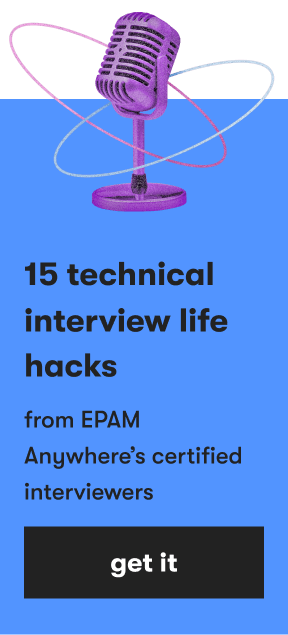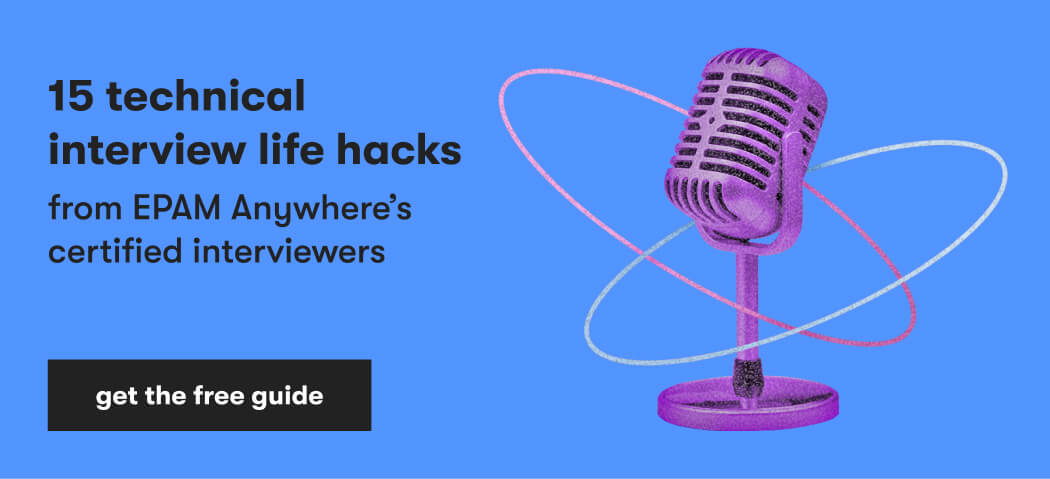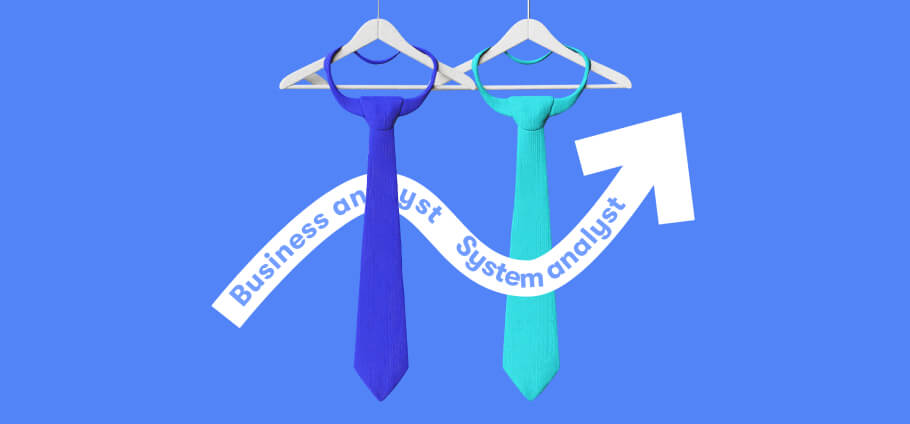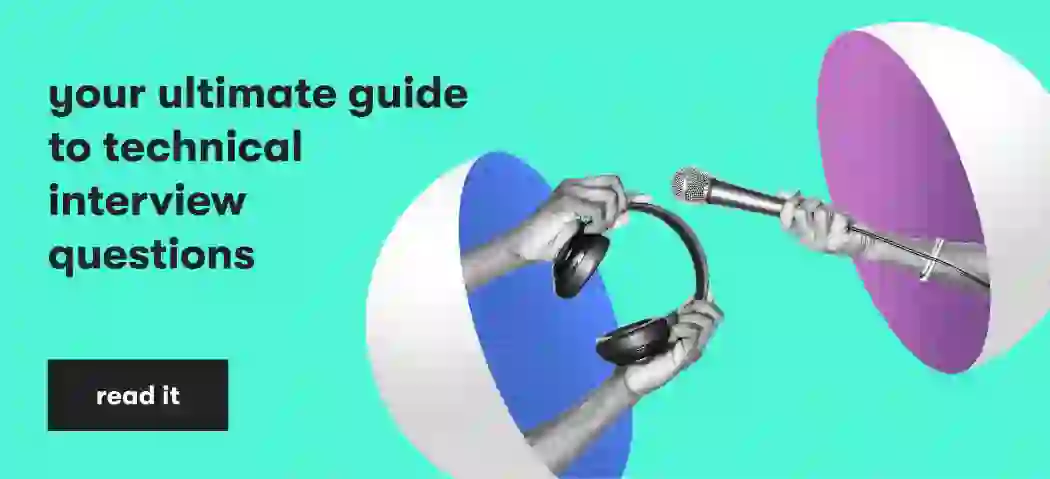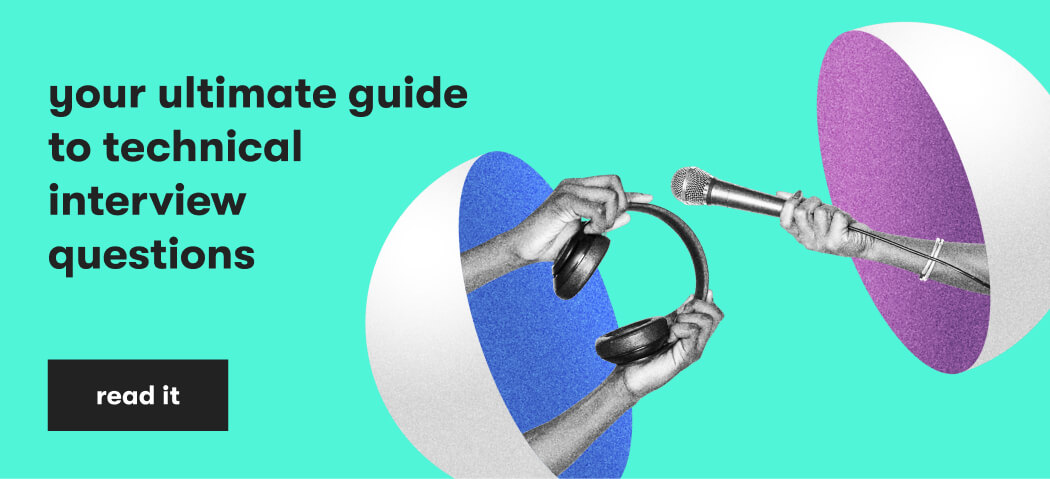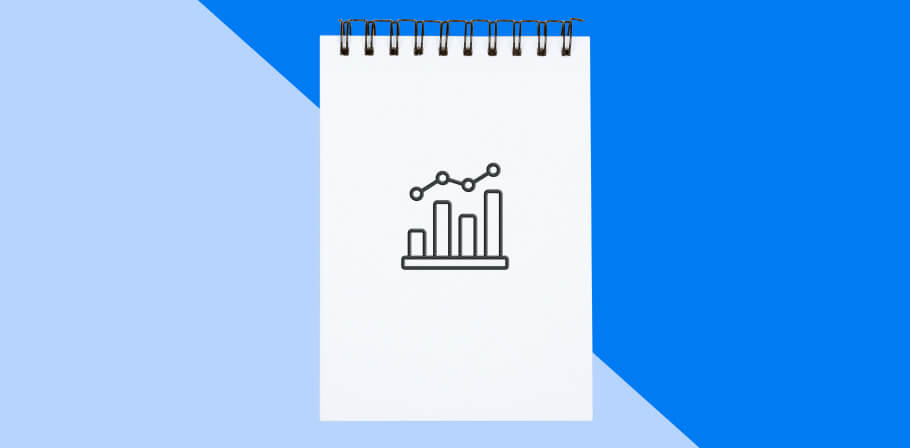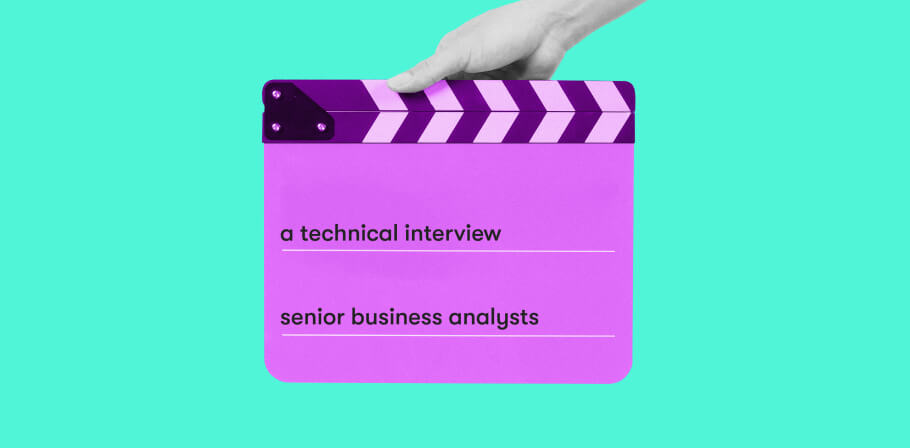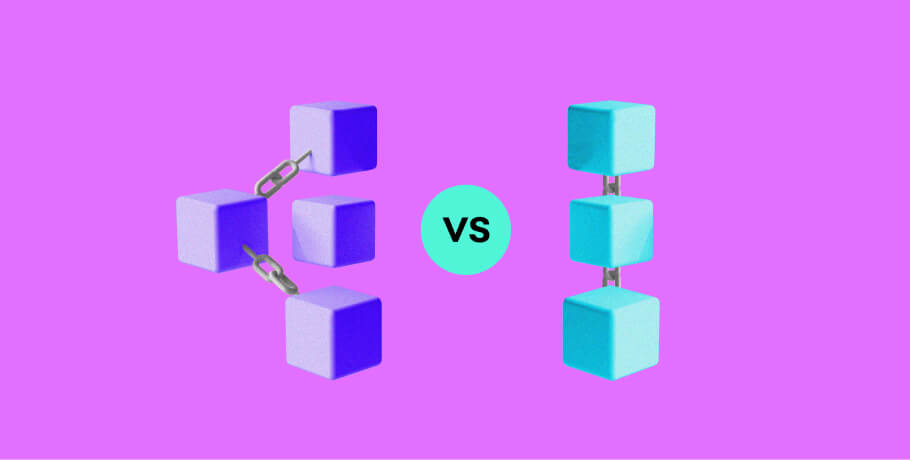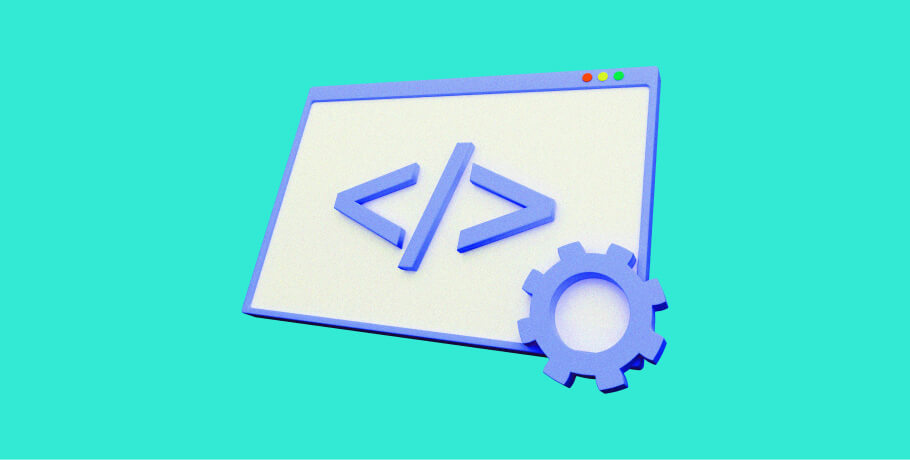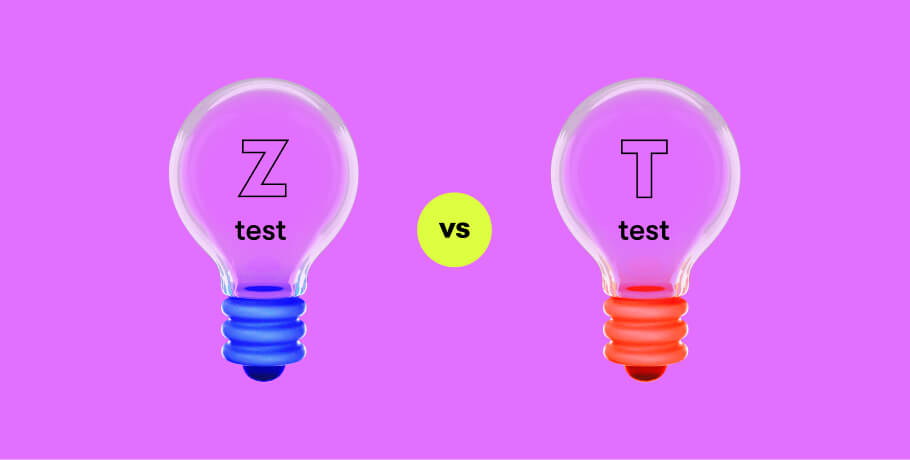Interviewing for a new role is challenging, particularly when candidates need to go through a technical knowledge check and answer business analyst interview questions. Business analysts need to communicate difficult concepts to non-technical staff and stakeholders, so being able to do so in an interview is essential.
Business analyst interview questions can be divided into two categories: those concerning the business analyst role and those focusing on specific business analysis techniques. We polled some of our own experts to help you understand the types of questions that might be asked, and how you can best prepare yourself to answer them.
Meet Anastasiya Belskaya, Business Analysis Team Leader. Anastasiya is a Certified Technical Interviewer (TI) and TI mentor with EPAM Anywhere, and she'll share some examples of questions asked at our technical interviews. Tolkynay Kartabayeva works as a business analyst with EPAM Anywhere, and she'll share her own hands-on experience of passing a technical interview at EPAM Anywhere for a business analyst position.
The interview process at EPAM Anywhere involves several different stages, as it does at many companies. Tolkynay shared that in her case, she went through three different stages — the general interview, the technical interview, and the offer interview.
Tolkynay specified that the most important interview stage was the technical interview that determined whether she would get the role or not. There were two Lead BAs from EPAM Anywhere’s side that asked her questions during her inte
"The first question was to talk about yourself and your experience (for approximately 5 minutes). Before answering, I thanked them for sharing their time and giving me an opportunity to have this interview. I described my experience at a high level, not giving any details, but mentioning that if they were interested in any of my experiences, I can describe them in more detail. My advice: prepare your intro in advance and match your applicable skills and experience to the role you are applying for."

Top business analyst interview questions asked at EPAM Anywhere
1. How will you prepare before the project starts?
Preparation is key for any project, even one that hasn't yet started. The business analyst should be prepared to ask questions about the project's goals, objectives, and deliverables. They should also be able to identify stakeholders and their roles in the project.
looking for a remote BA job?
Let us find one for you. Just send us your CV and our recruiters will get back with our best-matching job for you.
2. What is requirements analysis?
The requirements analysis phase is when the business analyst works with the stakeholders to understand the problem that needs to be solved. This is done through interviews, workshops, and other means of gathering information.
Some common IT business analyst interview questions about this phase include:
- How do you elicit requirements from stakeholders?
- What are some techniques for gathering requirements?
- How do you handle conflicting stakeholder requests?
- How do you verify that the requirements are complete?
3. What will you do if you’re the only BA on the project and need to perform the discovery?
If you're the only business analyst on the project, you'll need to perform the requirements gathering and analysis by yourself. This can be done through a variety of methods, such as interviews, workshops, and document analysis. Once you have a good understanding of the problem, you can start working on potential solutions.
When preparing answers to these questions, some key terms should be included to better demonstrate knowledge and expertise, such as:
- Workshops
- Vision
- WBS
- Feature list
- MVP
- Meeting minutes
4. Who are stakeholders?
Stakeholders are people or organizations who have a vested interest in the success or failure of the project. As a business analyst, you should get to know them when starting a new project.
For example, if you're working on a software development project, the stakeholders might include the development team, the product owner, and senior management.
Each stakeholder will have different goals and objectives for the project. It's important to understand what these are so that you can align your own goals with theirs. For example, if the development team is focused on delivering the product on time and within budget, then your goal as a business analyst should be to help them do that by providing clear requirements and identifying potential risks.
5. Which artifacts do you use for efficient stakeholder management?
This is a common senior business analyst interview question related to stakeholder analysis. There are many different artifacts that can be used for efficient stakeholder management, but some of the most common ones are:
- Stakeholder list
- RACI matrix
- Communication plan
- Power-interest matrix
"I didn’t have any experience of stakeholder analysis before, but I had theoretical knowledge and I was honest with the interviewer about that and I explained what I know: Onion diagram, RACI matrix, and interest/influence power diagram, and provided details about how to use all of them."

It is very important to understand that being honest about your strengths and weaknesses when answering business analyst interview questions goes a long way.
6. What’s your approach to defining priorities for requirements?
When approaching a prioritization question, it can be helpful to use the MoSCoW method, which stands for:
- M - Must have
- S - Should have
- C - Could have
- W - Won't have (or not right now)
Some other key terms to keep in mind when thinking about prioritization include:
- KANO model
- Eisenhower's matrix
- 100$ method
"I mentioned that at my previous projects we didn’t use any specific prioritization techniques because the projects were small and we used business value versus complexity. However, I described all the techniques that I know in theory, and provided some clarification on each and explained how the technique would be used in the real world."

7. Which documents do business analysts create?
When thinking about questions related to documentation, consider using the following terms:
- Vision & Scope
- SRS
- Specification
- User story
- Use case
- Meeting minutes
- Acceptance criteria
- GERKIN
- Definition of Ready (DOR)
- INVEST
"My experience in documenting requirements was diverse and depended on the project methodology. For projects I worked on that were based on the Waterfall model, I wrote BRD, technical specification, and technical feasibility documents. On Agile model projects, I described requirements by using user stories, acceptance criteria, use cases, and business rules. I also attended project meetings to take minutes for the team and document what was discussed and decided."

8. How do you perform change management?
Change management is a critical phase of any project since it encompasses the activities that ensure successful adoption of new processes, technologies, and/or behaviors. It's important for a business analyst to be familiar with various change management models and tools to effectively manage changes that occur during a project.
Some questions you may encounter during this section include:
- What does change management mean to you?
- What are some of the most common types of changes that occur during a project?
- What are some of the most effective ways to communicate changes to stakeholders?
- If a client comes to you with a change, how will you react and what will you do?
- How do you deal with resistance to change?
- What are some common pitfalls associated with change management?
In your answer, consider using such terms as change request and impact analysis.
9. What techniques do you use for requirements elicitation?
There are many different techniques that can be used for requirements elicitation, but some of the most common ones are: interviews, focus groups, workshops, questionnaires, surveys, observation, brainstorming, and document analysis.
During the interview process, other common questions related to requirements elicitation include:
- What's your experience with requirements elicitation?
- What is the difference between a requirement and a specification?
- How do you document requirements?
- What are some common tools used for requirements management?
- What has been your experience using these tools?
10. How does Waterfall differ from Agile?
There are different types of software development methodologies, each with its own advantages and disadvantages. The most common software development methodologies are Waterfall and Agile.
- Waterfall is a linear approach to software development in which each phase must be completed before moving on to the next phase. The advantage of Waterfall is that it is easy to understand. For a BA, it also means getting the client’s approval just once and then moving on to support the team with open questions. The disadvantage of Waterfall is that it can be inflexible, and it doesn't allow for changes to be made once a project has started. It also increases the risks that the final product will end up being no longer relevant for its market or won’t meet stakeholder needs.
- Agile is a nonlinear approach to software development that allows for changes to be made throughout the development process. The advantage of Agile is that it is flexible and allows for rapid delivery of working software. The disadvantage of Agile is that it requires advanced change management skills.
"Luckily, I worked in both models and shared my experience with both, identifying the pros and cons. Hint: do not criticize either model, because each model is suitable depending on the domain subject of the project. For the oil and gas sector, it’s obviously better to work on the waterfall model since there is some risk to the employee's health or even life. In startup projects or small innovative projects, it is better to work with an agile methodology. Try to show that you are able to work in different methodology according to business needs and preferences."

11. What diagrams do you use in practice?
Diagrams are a visual representation of the different phases of the project, how they're related to each other, and the order in which they need to be completed. Candidates should be familiar with the following types of diagrams:
- UML Diagrams
- Sprint backlog
Another common question that might be asked is:
- How is an activity diagram different from a sequence?
12. UX/UI questions
User experience (UX) and user interface (UI) are two separate fields that, together, make up the design of a product. UX is the process of making products that are useful, easy to use, and enjoyable to users. UI is the graphical layout of a product, and how users interact with it.
Some common questions asked in UX/UI interviews include:
- What is the difference between a wireframe and a prototype?
- What is usability testing?
- What is the difference between user-centered design and customer-centered design?
- What pros and cons do you see in visual prototyping?
- What tools do you use for wireframes/prototypes?
Key terms to use in your answer include:
- User journey
- Personas
- Prototypes
- Wireframes
- Designs
13. How do you estimate the effort required for a project?
When launching a project, it's essential to make accurate estimations, which is a key skill for business analysts. You'll be expected to give your project manager an idea of how long a task will take, as well as the risks and dependencies involved. This will allow them to create a more accurate project plan. There are different methods that can be used for estimation, such as using story points or using an analogy method.
Some common questions asked in interviews about estimation include:
- What factors do you consider when estimating?
- What is the difference between bottom-up and top-down estimation?
- What is the difference between analogous estimation and parametric estimation?
- How would you estimate your BA effort for feature analysis if asked?
- How would you deal with uncertainty when estimating?
Key terms to use in your answer include:
- Scope
- Story points
- T-shirt estimations
- Man days/hours
- Planning poker
- Decomposition
“My answer here was also based on my experience. In the waterfall model, I mostly estimated BA effort at a high level by decomposing it into small tasks using top-down or bottom-up estimation. Estimation was done beforehand since, in G2B projects, the estimation should be done at the end of the year to make a budget for future project activities. In Agile projects, it is best to plan poker with story points (effort, difficulty, uncertainty) in Fibonacci, and do a high-level T-shirt size estimate. A tip from me: try to combine your experience and some theoretical knowledge if you know some more techniques but haven’t used them in your previous work.”

14. How would you document a process of integration between two systems?
There are a few different ways to answer this question. One way would be to describe the steps you'd take to integrate the two systems. Another way to answer would be to provide a high-level overview of how you'd approach the integration project.
Key terms to use include:
- API
- XML/JSON
- Microservices
- ETL
Such technical interview questions are designed to assess a candidate’s skills, knowledge, and experience in a particular area or technology. When preparing for a technical interview, it's important to brush up on your skills and knowledge in the specific area of technology that you'll be interviewed on. It's also helpful to have a few sample questions and answers prepared so that you can practice your interviewing skills.
A practical task
A sample practical question for a BA role could be something like the following:
- As a BA for a big retail project, you are in charge of adding new functionality — a wishlist. The client is an online cosmetics shop and they want to give their customers more options when making purchases. We need your help figuring out what requirements we'll need before creating this feature, so please go through a list of questions that you'd ask to gain this information.
Tolkynay had a similar practical question in her interview which she details here:
"I had the following practical task: you are a BA for an e-commerce B2C project in healthcare where our client is a private hospital that wants to enable prescription issuing and appointment booking for their patients via a new platform. As a BA in the discovery phase, explain what kind of platform we should create for this customer. So, I said that I would ask questions to collect the requirements and then prepare user stories for my development team with a possible solution."

Final tips
- Paraphrase or clarify any unclear parts of the question.
- Use the STAR method in your answers where possible. This will ensure that your responses are well structured, and contain enough relevant detail to demonstrate your suitability for the role.
- Don’t say "I don't know" as this can make you appear unprepared. If you genuinely don't know the answer to a question, try to take an educated guess based on your understanding of the role, or ask for clarification from the Interviewer.
- Try to relax and be yourself during the business analyst interview process. The interviewer wants to get to know you as a person, not just a list of qualifications and experience, so let your personality shine through!
"Don’t worry, be confident, don’t lie, and don’t give up. Even if you don’t know the answers, try to think logically and find a proper solution. The interviewers from EPAM Anywhere are all very calm and polite. They are highly experienced and will give you detailed feedback after the interview finishes. I wish you good luck and hope that you join the best team ever — EPAM Anywhere!"

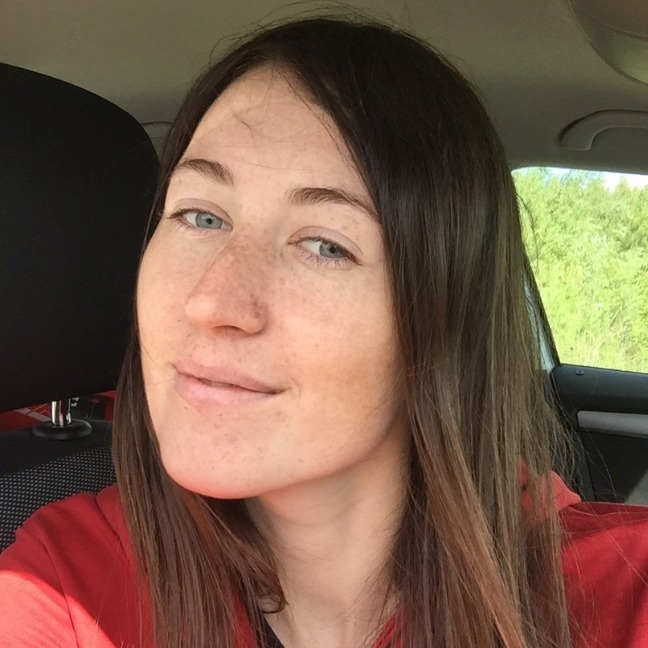
Explore our Editorial Policy to learn more about our standards for content creation.
read more


